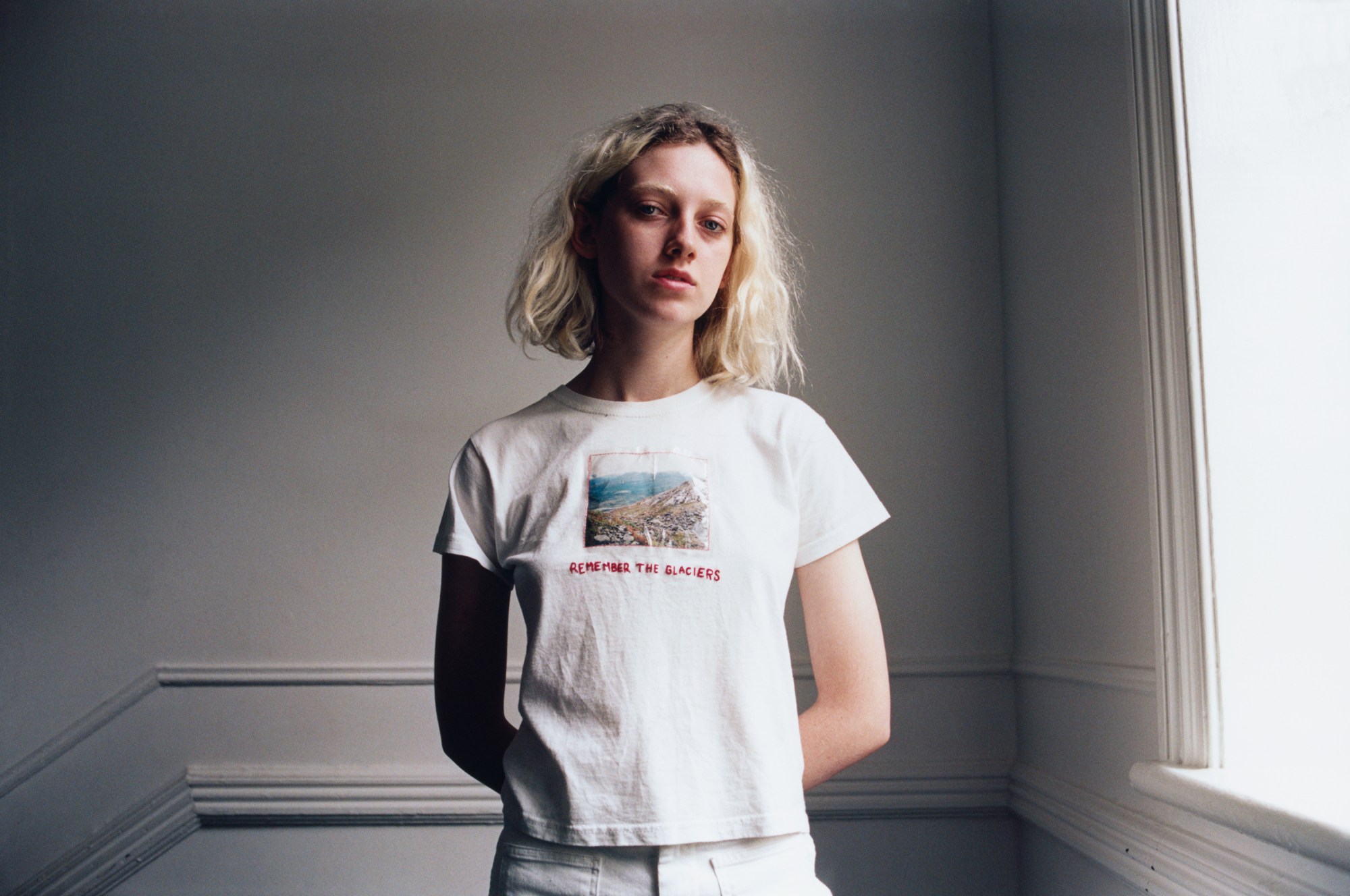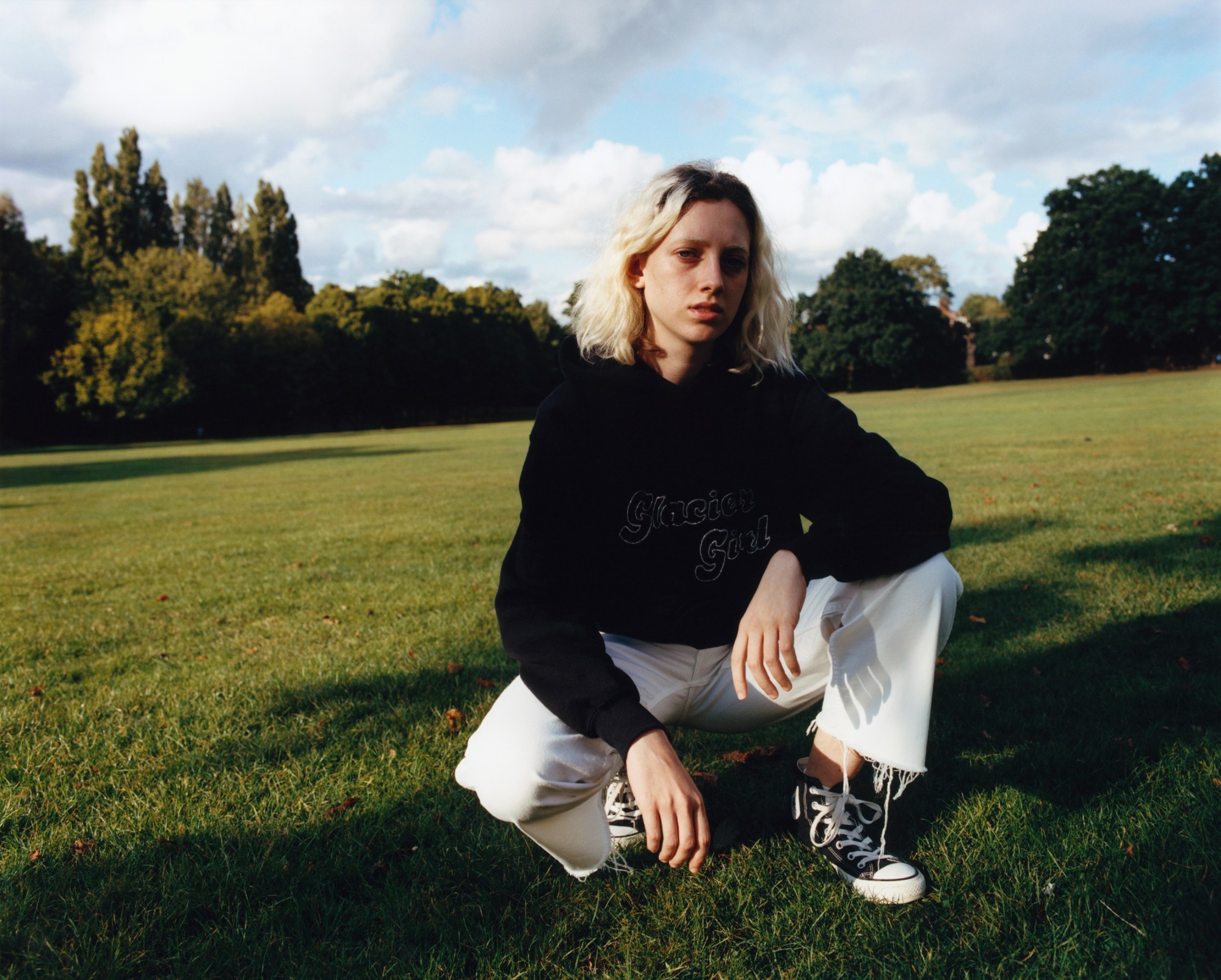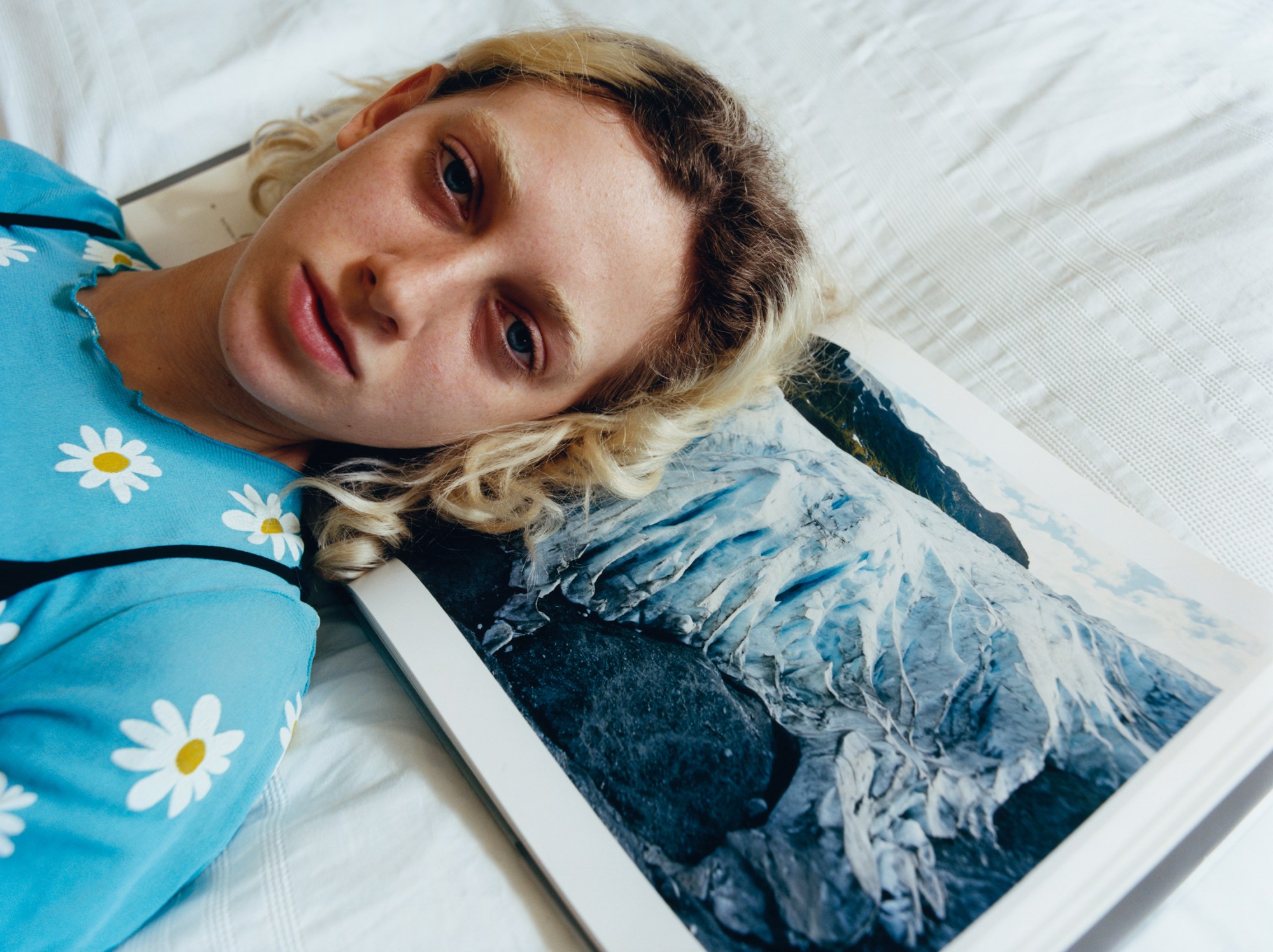Like most successful millennials her age, Elizabeth Farrell’s story began on Instagram, three years ago. Rather than selfies and the like, she created an account to that introduced climate change to a younger audience. Inspired by her secondary school studies on glaciers, she began exploring ways to make the somewhat alternative rhetoric of environmental activism appeal to her peer group, and social media seemed like a good fit. So, under the alias Glacier Girl, she set up an account and began posting photoshoots of herself surrounded by glacial landscapes, and images of all the merch she made, which are all about saving the environment. What started out as a school project has now become a life calling.
“With climate change you can’t actually see it,” Elizabeth explains, “so I wanted to create imagery that allows you to really visualise something.” With her DIY activism and Tumblr girl aesthetic, she captured the minds of millennials at the click of a button, which took the 21-year-old Putney native by surprise. “I was confused. I couldn’t figure out why people really liked it, but it kind of just picked up,” she admits.
Over past few years Elizabeth has had great success promoting environmentalism and engaging young people through her alias, Glacier Girl. On top of her social media campaigns and environmentally friendly merch, she’s also appeared in various style titles, getting her message across to a widespread audience both online and in print. She was also tapped by British designers Vivienne Westwood and Ashley Williams to walk in their LFW shows, even collaborating with the former on her #savethearctic campaign. At first this didn’t come naturally. “I felt so out of my depth and every time I would get an opportunity I was like, ‘I’m literally dying, I don’t know how to do any of this!'”

Most recently, Elizabeth appeared in BBC Four’s Silent Roars, alongside other activists such as Munroe Bergdorf, as part of their Listen to Britain 2017 collection of short documentaries. Filmed in the snow-capped mountains of the Cairngorms, Scotland, Elizabeth’s episode is all about the dangers of climate change, mass consumption, rising sea-level and globalisation, as well as the importance of changing the ‘eco friendly’ aesthetic in order to appeal to younger generations to come. During the episode she candidly addresses the criticism she’s faced over the years, from people questioning her motives, accusing her of not really caring about the environment, and just doing it to bolster her social media following. “It made me doubt myself as an activist,” she can be heard on screen.
“In a weird way I’ve always been able to relate more to a glacier than I could to a person and I guess that now makes sense,” she muses. One reason she now attributes to her connection with the natural world – with glaciers and colder climates in particular — is her recent Autism Spectrum Disorder diagnosis, (a condition that can affect the way people process and interact with the world around them). “Apparently people with autism have a better understanding of natural systems,” she explains. “The diagnosis is so useful because now my life makes sense; now I can focus on ways in which my brain works best and the things I should avoid.” For the past five years, Elizabeth was misdiagnosed by the mental health system, and mistakenly and unethically medicated. “The medication stopped me from thinking,” she reveals. “You’re not supposed to medicate Autism.”
With her new diagnosis, Elizabeth is able to draw links between her passion for the natural world, and her disconnection with traditional forms of identification. It’s also made her rethink her approach to environmental activism. Though she’s immensely proud of all her past efforts, Elizabeth fears she may have “branded” herself too soon with her alias. “I’m completely re-addressing all my methods. Is social media really that useful? Maybe the way I’m doing it isn’t quite right.” Where previously she’d create imagery based on subjects that interested her and aesthetics that felt right from “a raw perspective”, now that she’s a little older, she plans to put in a lot more research and really educate herself.

Currently studying Geography at Birkbeck University and learning about the environment from a more scientific perspective, she feels confident that taking time to slowly develop ideas will make for better and more engaging work. “It’s slow, long term stuff which I feel more comfortable with and will actually be more useful. I think working slowly generally makes more sense. We haven’t got much time with climate change but we can’t rush things, either; it doesn’t work like that.”
Saving the planet from human destruction seems like a mammoth task, it’s no wonder, then, that Elizabeth is wary of offering one definitive solution. “Simplifying really complex issues is not the right way to go about things,” she argues. “I don’t think you can generalise answers for a global population, because the issues are so complex in themselves. For instance, it’s not possible for everybody to be vegan, and even if everybody was vegan then it might not be that sustainable an option.”
Although it can be hard to see immediate results in the fight against climate change, Elizabeth reckons things have at least changed in the way we talk about it. “Since I’ve started, there’s been an increase in the amount of people talking about stuff. Young people are becoming more and more engaged. I think the main thing is really just to talk about it and have conversations about it, because it needs to be a political thing and if we are all communicating about what we want then hopefully, eventually that may happen.”
